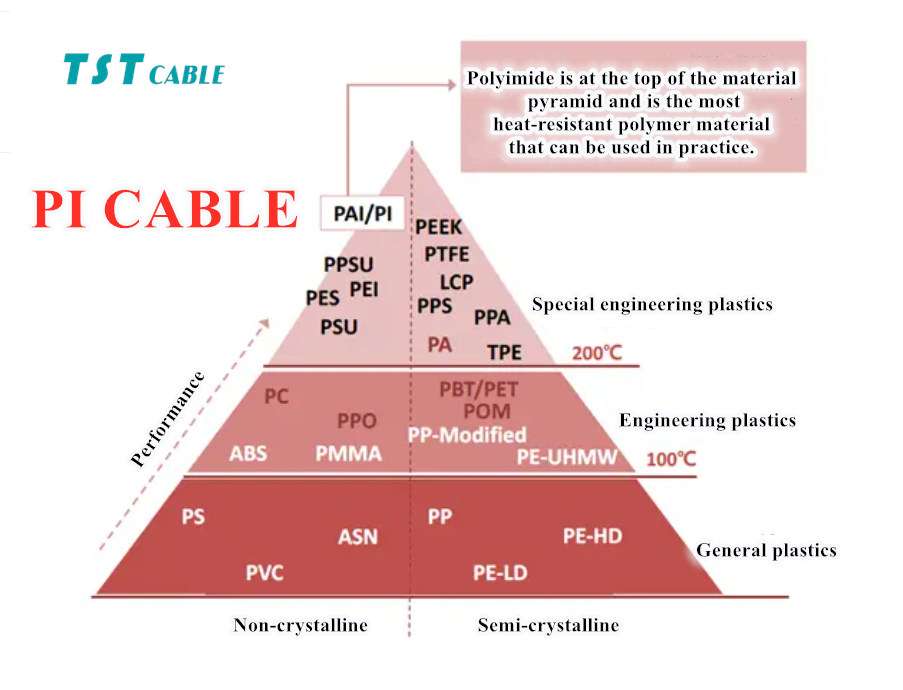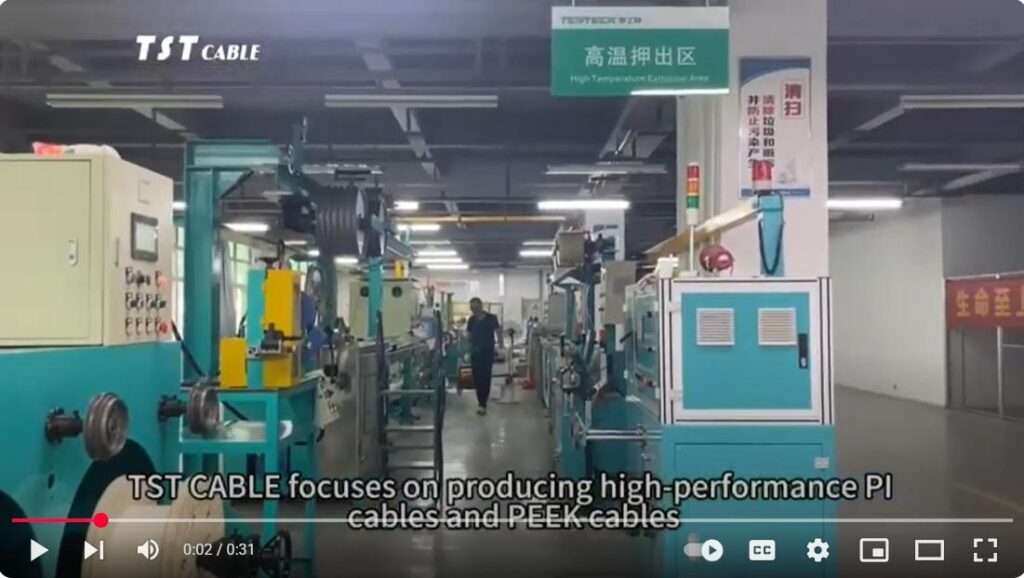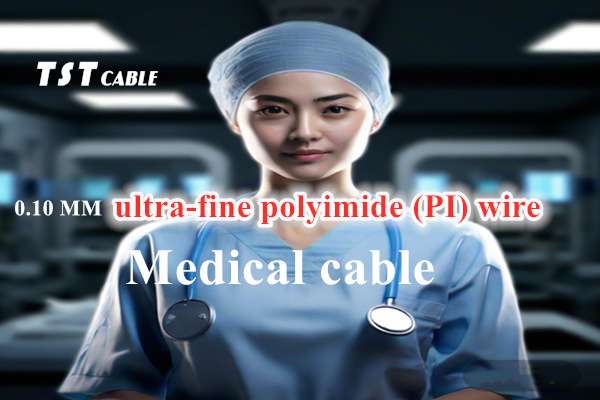The application of polyimide PI, the top polymer material, and the story of human landing on the moon
In the early morning of December 8, 2018, the Chang’e-4 probe was launched from the Xichang Satellite Launch Center, marking my country’s first soft landing on the back of the moon, lunar patrol exploration, and moon night survival. This time, Chang’e-4 successfully brought the national flag to the back of the moon, marking the “Chinese logo” for space. It is reported that the national flag of this probe is not made of common chemical fiber fabrics, silk, cotton and other textiles. It is well known that the space environment is very special. There is no atmosphere on the surface of the moon. It is a vacuum state. When exposed to sunlight, the maximum temperature of the lunar surface during the day can reach 123°C. At night, outside the lunar module, the temperature on the moon will drop sharply to minus 233°C.

Such an extreme temperature difference is unbearable for ordinary materials, and the ultraviolet rays generated by the sun are very strong. There is also the radiation of cosmic rays and high-energy particles, which have a strong destructive effect on materials.
The national flag flying on the moon is made of PI organic polymer film material, which is completely different from the common national flag. It can withstand the harsh lunar surface environment, does not fade, and does not deform. What are the special advantages of PI material that makes it unique among polymer materials? Friends who are interested in PI materials can learn more about it with TST CABLES.
Introduction to polyimide (PI) cable
Recently, countries have listed the research, development and utilization of PI as one of the development priorities of new chemical materials in the 21st century. PI has great application prospects as a structural material or a functional material due to its outstanding characteristics in performance and synthesis.

polyimide (PI) cable is an aromatic heterocyclic polymer compound with an imide chain link in its molecular structure. It is one of the most heat-resistant varieties of engineering plastics at present and is widely used in aviation, aerospace, microelectronics, nano, liquid crystal, laser and other fields.
polyimide (PI) cable is known as the top material of the polymer material pyramid, and is also known as a “problem solver”. Some industry insiders even believe that “without PI, there would be no microelectronics technology today”.
Polyimide cables are widely used in many industries due to their excellent high temperature resistance, good electrical properties and chemical stability. By strictly following industrial standards for manufacturing and testing, polyimide cables can ensure stable and reliable operation under various harsh environmental conditions, making them an ideal choice for many high temperature and special applications.
The application of polyimide (PI) cable materials in the aerospace field also includes cables, spacecraft golden coats, spacecraft thermal insulation materials, and aircraft engine outer duct materials. In the future, the growth of the aerospace market may become a major driving force for the growth of the polyimide market.
Market prospects of polyimide (PI) cable
According to relevant statistics, the global aviation manufacturing industry market size continues to increase, and the current global market size has exceeded one trillion US dollars.

The scale of China’s commercial aerospace market has increased year by year. From 2015 to 2020, the output value has exceeded 376.42 billion yuan to one trillion yuan, with an average annual growth rate of 22%. It is expected that the market size will reach 233.82 billion yuan in 2024.
Relevant institutions predict that the global commercial aviation equipment market will grow by 3.7% in the next five years, and by 2027, the global aviation equipment market will reach US$1,176.9 billion.
Overview of polyimide (PI) cable
Definition: Polyimide cable refers to a cable that uses polyimide as an insulating material.
Features: It has excellent high temperature resistance, good electrical properties and chemical stability, and is suitable for high temperature environments and special applications.
Standards: Common polyimide cable standards include UL1330, UL1331, etc. These standards specify the electrical properties, mechanical properties and combustion properties of cables.
Classification and application of polyimide (PI) cable materials
Due to its excellent performance, polyimide (PI) cable can be used in a variety of fields and can also be divided into a variety of types, including engineering plastics, fibers, photosensitive PI, foam materials, coatings, adhesives, films, aerogels, composite materials, etc.
Among many polymers, polyimide (PI) cable is the only polymer that has a wide range of applications and shows outstanding performance in every application field.
In addition, with the gradual maturity of the carbon fiber industry, the demand for carbon fiber reinforced composite materials has increased significantly. The combination of polyimide and carbon fiber, as one of the most excellent composite material combinations, has obvious advantages in seizing the high-end market.
polyimide (PI) cable covers almost all types of polymer materials, including high-performance films, engineering plastics, foam plastics, chemical fibers, adhesives, resin matrices, insulating materials, functional materials, composite materials, etc.
The performance of polyimide (PI) cable is strongly dependent on its chemical structure. PIs of different structures can be selected or synthesized according to the purpose, or they can be modified by copolymerization, blending, filling, and reinforcement. The development of new PI is inseparable from the development of new monomers. Special structured diamine and dianhydride monomers are necessary guarantees for the development of new polyimide varieties, and reducing monomer costs is the key to reducing polyimide.
Based on this, TST CABLES specially organizes the characteristics of polyimide materials and related application directions in various fields, and will introduce polyimide cables in detail from multiple angles.
Features of polyimide (PI) cable
High temperature resistance: polyimide cable can work stably in high temperature environment, with the maximum working temperature reaching 250°C to 265°C.
Good electrical properties: provides excellent electrical insulation performance, suitable for electrical applications.
Chemical stability: has good tolerance to a variety of chemicals, suitable for chemical industrial environment.
Low smoke and halogen-free: low smoke production during combustion, and does not contain halogen compounds, which is friendly to human health and the environment.
Flame retardant: has good flame retardant properties, suitable for applications requiring flame retardant properties.
Flexibility: even under low temperature conditions, polyimide cable can still maintain good flexibility, easy to bend and install.
Application fields of polyimide (PI) cable
Aerospace field:
Application: polyimide cable is widely used in wires and cables inside aircraft and spacecraft.
Advantages: excellent high temperature resistance and chemical stability, suitable for environments with extreme temperature changes.
Automobile manufacturing industry:
Application: polyimide cable is used for wires and cables in the engine compartment of automobiles, such as sensor connecting wires.
Advantages: Good high temperature resistance and chemical resistance, able to work stably under extreme conditions.
Medical equipment:
Application: Polyimide cables are used for wires and cables in medical equipment, such as monitoring equipment and therapeutic instruments.
Advantages: Low smoke and halogen-free characteristics, suitable for medical environments that require high safety.
Laboratory equipment:
Application: Polyimide cables are used for wires and cables in laboratory equipment, such as high-temperature experimental furnaces.
Advantages: Excellent high temperature resistance and chemical stability, suitable for experimental environments that require precise control.
Industrial automation:
Application: Polyimide cables are widely used for signal transmission and power supply of industrial automation equipment.
Advantages: Excellent high temperature resistance and chemical stability, suitable for harsh environments.
Heating equipment:
Application: Polyimide cables are used for wires and cables in high temperature environments such as heating equipment and ovens.
Advantages: Good high temperature resistance and flexibility, suitable for applications that require frequent bending.
Technical parameters of polyimide (PI) cable
Conductor materials of polyimide (PI) cable:
Common materials: tinned copper wire or multi-strand tinned copper stranded wire.
Conductor structure: single strand or stranded conductor.
polyimide (PI) cable insulation material:
Polyimide: As an insulation material, it has good high temperature resistance and chemical stability.
polyimide (PI) cable rated voltage:
Range: Usually 600V or higher, depending on the model and standard.
Typical value: For example, the rated voltage of UL1330 is 600V.
polyimide (PI) cable operating temperature range:
Low temperature performance: Usually able to maintain flexibility at -55°C.
High temperature performance: The maximum operating temperature can reach 250°C to 265°C, depending on the model.
Typical value: For example, the temperature range of UL1330 is -55°C to +250°C.
polyimide (PI) cable size specifications:
Conductor diameter: According to AWG specifications (American Wire Gauge).
Insulation thickness: According to the model and standard.
Cable outer diameter: Usually slightly larger than the conductor diameter plus twice the insulation thickness.
Combustion performance of polyimide (PI) cable:
Flame retardant grade: According to different standards, polyimide cables may have different flame retardant grades, such as VW-1, FT1, etc.
Burning test: vertical burning test, horizontal burning test, etc.
Physical properties of polyimide (PI) cable:
Tensile strength: Indicates the strength of the cable under tension.
Bending radius: The minimum bending radius is usually several times the outer diameter of the cable.
Tensile performance: Tests the breakage of the cable under tension.
Electrical properties of polyimide (PI) cable:
Conductor resistance: Indicates the resistance value of the conductor at a specific temperature.
Insulation resistance: Indicates the resistance value of the insulating material under a specific voltage.
Withstand voltage test: Tests the insulation performance of the cable under high voltage.
Environmental adaptability of polyimide (PI) cable:
Chemical resistance: Good tolerance to a variety of chemicals.
Weather resistance: Able to be used for a long time in outdoor environments.
Oil resistance: Able to resist the influence of grease and fuel.
polyimide (PI) cable standards and tests
UL1330: Suitable for wires and cables in high temperature environments, with a maximum operating temperature of up to 250°C.
UL1331: Suitable for wires and cables in high temperature environments, with a maximum operating temperature of up to 265°C.
Other certifications: CE, TUV, CSA, etc.
polyimide (PI) cable test items
Electrical performance test: including conductor resistance test, voltage resistance test, insulation resistance test, etc.
Flammability test: including vertical burning test, horizontal burning test, etc., to ensure that the cable has good flame retardant properties.
Physical performance test: including tensile test before and after aging, tensile test, etc., to evaluate the mechanical strength and durability of the cable.
Environmental adaptability test: including high and low temperature resistance test, chemical corrosion resistance test, etc., to ensure the performance and safety of the cable under different environmental conditions.
The above introduction is some of the characteristics and applications of conventional ordinary polyimide (PI) cables. After thousands of material selections, research and development, and testing, TST CABLES has innovated on the basis of ordinary PI materials and developed a new type of extruded polyimide (PI) cable, whose key performance exceeds that of ordinary polyimide (PI) cables by nearly twenty times. The following is a comparison of the test performance of extruded polyimide (PI) cables and ordinary wrapped polyimide (PI) cables. For users who pursue high-quality polyimide (PI) cable performance, this is a great progress and transcendence in cable technology. In this era full of opportunities, only by continuous innovation, courage to try, and breaking boundaries can we continue to grow.
TST CABLES high-performance extruded polyimide (PI) cable – extreme heat resistance, excellent performance
TST CABLES extruded polyimide wire has unique advantages among many cable products due to its unique process advantages. In particular, its remarkable surface smoothness, compared with traditional wrapped polyimide wire, the surface smoothness and wear resistance of extruded polyimide wire are more outstanding.
While pursuing excellent performance, we are well aware of the importance of power safety. Extruded polyimide cables are designed for harsh environments to ensure that every inch of the cable can withstand the test of time and environment. Whether in busy industrial automation control systems or in the aerospace field with extreme temperature changes, TST CABLES extruded polyimide cables can provide stable electrical connections, allowing every task of mechanical equipment to be successfully completed.
Comparison of scratch resistance performance of new extruded PI wire and ordinary wrapped PI wire
TST CABLES R&D engineers used extruded PI wire and wrapped PI wire in the laboratory to conduct scratch resistance test comparison under the same conditions. The data are as follows:
| Category | Conductor diameter mm | Finished product outer diameter mm | Insulation thickness mm | Scratch resistance (10N) |
| PI CABLE Wrapping wire | 0.50 | 0.97 | 0.235 | 178 |
| PI CABLE Extrusion wire | 0.40 | 0.60 | 0.100 | 5100 |
From the above scratch resistance times, it can be clearly seen that the surface of the extruded wire is very smooth and has high scratch resistance.
TST CABLES’s PI cable is made of high-quality polyimide material, which not only has excellent high temperature resistance and chemical stability, but also can resist the erosion of various chemicals, ensuring excellent performance in complex environments. From sophisticated manufacturing processes to strict quality control, every step is designed to bring you safe, reliable and efficient electrical connection solutions.
If you need further technical support or cable solutions for custom extruded polyimide (PI) cables, UL cables, Teflon wires, armored wires, industrial cables, power cables, control cables and other products, you can visit the TST CABLES official website or send an email to the professional cable engineer of TST Cable at any time (email: lixiangchao@testeck.com, please state your country, your industry, and your needs in the email, and we can also provide you with free samples).
Also available in:
English




